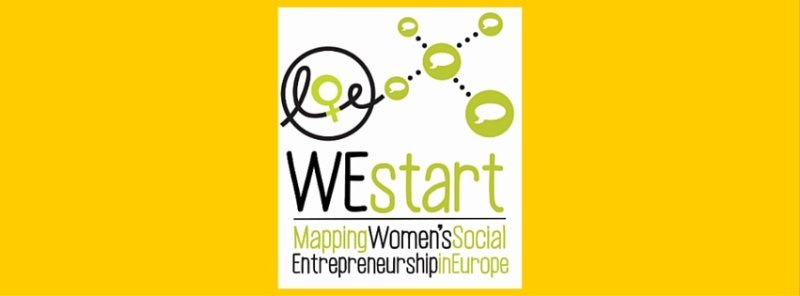[Brussels, 17 November 2014] Can fostering women’s social entrepreneurship in Europe create jobs, solve social issues, and bring more women into the traditional entrepreneurship sector? The European Women’s Lobby is on a mission to find out.
Everyone in the conference room at the EU workshop on social entrepreneurship is buzzing with anticipation. The crowd—a mix of older professionals in suits and twenty-somethings in jeans—is in good spirits, people smiling as they reach over each other to exchange business cards and handshakes. But in the back row, Emily Usher Shrair, European Women Lobby’s newest Project Manager, is frowning into her smartphone and tweeting furiously.
“Why are there so few #women on the expert panel?!”
It’s a good question. The gender gap in social entrepreneurship is generally smaller than the gender gap in traditional commercial entrepreneurship; research by Social Enterprise UK shows that twice as many women run social enterprises than lead small businesses. But on a policy level, social entrepreneurship and women’s entrepreneurship remain two niche special groups, with little attention given to the fact that there is often a major overlap between them.
Within the context of the Europe 2020 Strategy, encouraging women’s entrepreneurship is seen as one of the means of boosting employment, and in particular, to reach the European employment target of 75% for women and men throughout the EU by 2020.
However, little focus is given to women’s social entrepreneurship as a means of not only increasing employment, but building sustainable communities, solving pressing social issues, and encouraging women to participate in the traditional entrepreneurship sector.
WEstart is a new, privately funded year-long pilot project which seeks to gain a better understanding of the situation and state of play of women’s social entrepreneurship in Europe.
This pilot project, which focuses on ten European countries, is the first step in a longer term strategy to help foster women’s social entrepreneurship by connecting social entrepreneurs and advocating for policy change that supports women’s leadership in this growing sector.
“The WEstart project is very important, as this area is very under-researched”, says Anne Laure Humbert, Gender Expert at the European Institute of Gender Equality. “It is also tremendously important to examine it within a comparative perspective across several countries.”
The project consists of carrying out a mapping of what currently exists, where women’s social entrepreneurship is located and its breath in terms of 10 Member States of the EU: France and Germany; Bulgaria and Hungary; Italy and Spain; Sweden and Lithuania; Ireland and the United Kingdom. EWL Members have been contacted to help with the recruitment process for ten national experts on women’s social entrepreneurship, who will undertake country-specific research. As a result of the mapping, a Digital Learning Platform consisting of an Interactive Map, Database of Women Social Entrepreneurs, National Factsheets and Overview Report, and Networking Tools will be produced, and unveiled at a final conference in September 2015.
The European Women’s Lobby is excited to embark on this new project, which has already generated a great deal of interest both from members, as well as from outside organizations.
Joanna Maycock, EWL Director remarked, “A feminist analysis of the state of play of women’s social entrepreneurship in Europe is both vital and relevant as the European Union looks to find ways to address both mass scale unemployment and growing social exclusion. As we seek to promote a feminist economy and a new way of approaching income-generation and employment, we need to understand the risks and opportunities women-led, women-focused social enterprises present. Our position as the largest umbrella organisation of women’s associations in the European Union (EU) puts us in a prime spot to do so.”
For her part, Project Manager Emily Usher Shrair, who runs two feminist social enterprises of her own, is excited to bring more visibility to women’s social entrepreneurship in Europe.
“It is time that this sector and the women who are leading it are taken seriously at a policy level”, she commented. “I firmly believe that WEstart has the potential to help make that happen.”
Find all info on the WEstart here.
#WEstart



